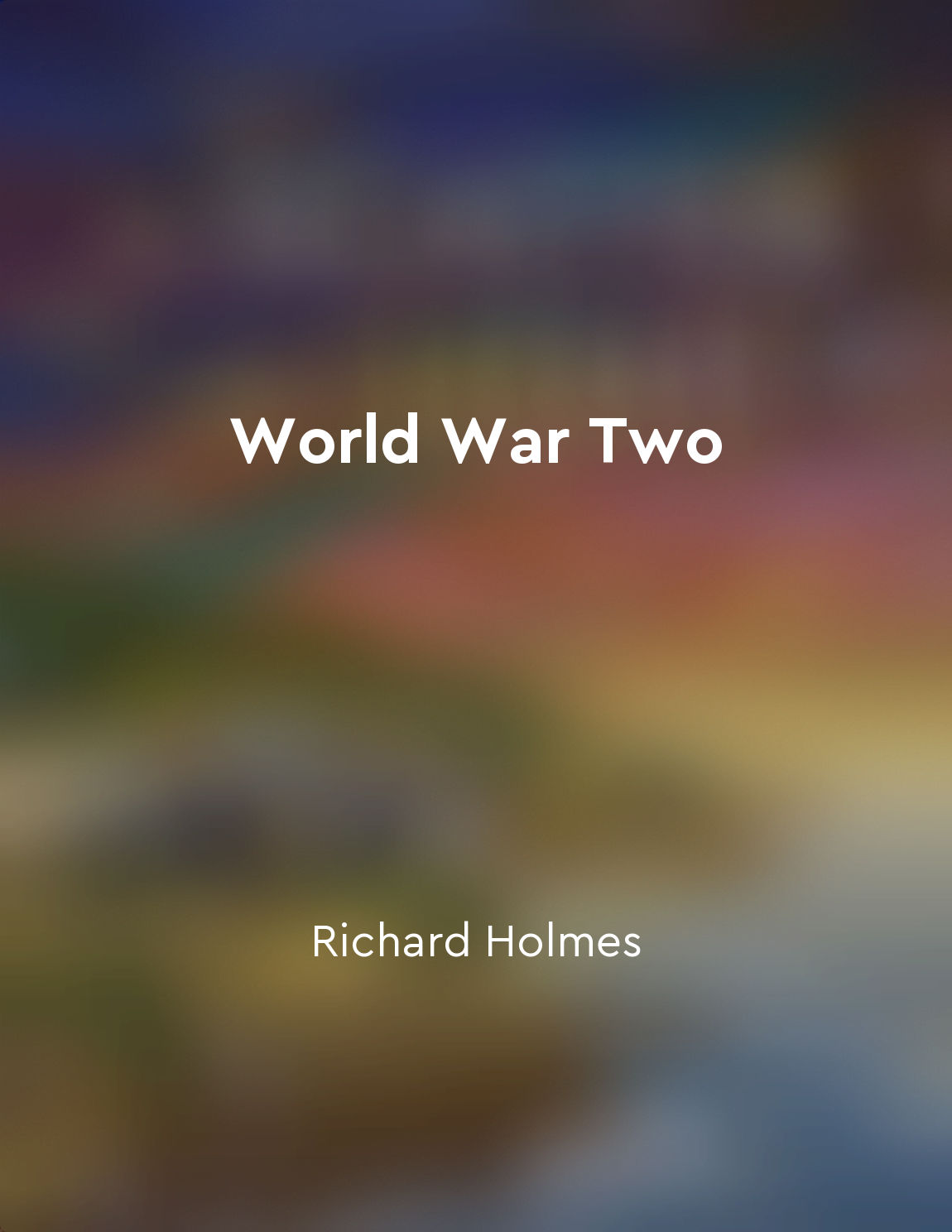Economic repercussions felt from "summary" of World War Two by Richard Holmes,Ann Kramer,Charles Messenger
The economic repercussions of World War Two were deeply felt across the globe. The war brought about significant changes in the economic landscape of many countries, as resources were diverted towards the war effort. Industries that supported the war saw an increase in production, but this came at the expense of other sectors of the economy. Many countries experienced inflation due to increased government spending and a shortage of consumer goods. In an effort to finance the war, governments borrowed heavily, leading to high levels of national debt. This debt burden would have long-term effects on the economies of many countries, as they struggled to repay what they owed. The war also had a profound impact on international trade. Many countries found their traditional trading partners cut off by the conflict, leading to a disruption in supply chains and a decline in exports. This, in turn, led to a decrease in national income and a rise in unemployment in many countries. In the aftermath of the war, countries had to rebuild their economies from the ground up. The destruction caused by the conflict meant that many industries had to be rebuilt, and this required significant investment and resources. The war also left many countries with a massive refugee problem, which placed further strain on their economies.- The economic repercussions of World War Two were far-reaching and long-lasting. The war fundamentally altered the economic landscape of many countries, leaving them to grapple with the consequences for years to come.


